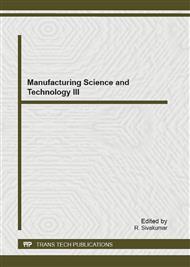p.1730
p.1734
p.1738
p.1745
p.1749
p.1754
p.1759
p.1764
p.1768
Properties Change of Black Liquor in Process of Biological Purification Lignin
Abstract:
Removing the carbohydrate of black liquor through biological treatment to converted it into alcohol, as to improve the purity of lignin. Through the study we found that the content of lignin and carbohydrate decreased in the biological purification process. The content of lignin in alkaline black liquor decreases 12.9% after fermentation. And in alkaline sodium sulfite black liquor it decreases 6.4%. Compared with black liquor, the content of total sugar in soda black liquor decreased 77.1%. And in alkaline sodium sulfite it decreases 77.8%. The lignin purity of two kinds of black liquor will improve after the biological treatment. Lignin of alkaline black liquor by biological treatment and organic matter of black liquor ratio increase 28.74%, which increases 29.35% in alkaline sodium sulfite black liquor. The viscosity and CODcr of two kinds of black liquor will reduce after the biological treatment. The relative viscosity of alkaline black liquor after enzymolysis reduces to 1.178, while the relative viscosity of alkaline sodium sulfite black liquor reduces to1.164. The CODcr of alkali black liquor after biological treatment decreases 15.65%; and the CODcr of alkaline sodium sulfite liquor reduces 10.59%.
Info:
Periodical:
Pages:
1749-1753
Citation:
Online since:
December 2012
Authors:
Keywords:
Price:
Сopyright:
© 2013 Trans Tech Publications Ltd. All Rights Reserved
Share:
Citation:


